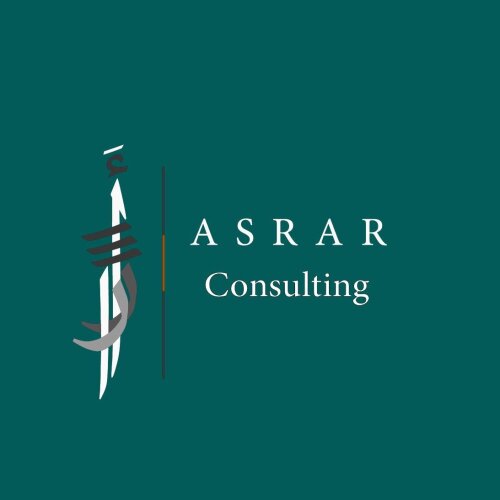Best Mortgage Lawyers in Ramallah
Share your needs with us, get contacted by law firms.
Free. Takes 2 min.
Free Guide to Hiring a Real Estate Lawyer
List of the best lawyers in Ramallah, Palestine
About Mortgage Law in Ramallah, Palestine
Mortgage law in Ramallah, Palestine, falls under the broader category of property and real estate law. The concept of a mortgage involves a property owner borrowing money and setting the property as collateral for the loan. Should the borrower default on the loan, the lender has the right to foreclose on the property to recover the outstanding debt. Mortgages are a common method for individuals and businesses to finance the purchase of real estate in Ramallah. Palestinian law governs mortgage contracts, registrations, foreclosures, and other related legal matters, ensuring both borrower and lender rights are maintained.
Why You May Need a Lawyer
In Ramallah, you may need a lawyer for various mortgage-related issues, including but not limited to drafting and reviewing mortgage contracts, understanding complex regulations, resolving disputes between borrowers and lenders, and representing parties in foreclosure proceedings. Lawyers can also provide critical advice on matters such as mortgage fraud, property rights, ensuring compliance with local zoning laws, and transferring mortgages. They can also represent clients in negotiations and provide legal guidance tailored to specific situations that frequently arise during the mortgage process.
Local Laws Overview
Local mortgage laws in Ramallah, Palestine, cover several key aspects of the mortgage process. First and foremost is the requirement for mortgage contracts to be registered with the competent authorities to ensure legal recognition and enforceability. The law also details the rights and obligations of borrowers and lenders, the terms of foreclosure and sale of mortgaged property, and the priority of claims against the property. Usury laws regulate interest rates and protect borrowers from excessive charges. Consumer protection laws also play a role in ensuring fair practices in mortgage lending.
Frequently Asked Questions
What legal documents are required to obtain a mortgage in Ramallah?
To obtain a mortgage in Ramallah, at a minimum, you will need to provide proof of identity, proof of income, property details, and a sales contract. The specific requirements may vary according to the lender's policy and regulations in force.
How is a mortgage registered in Ramallah?
A mortgage is registered with the Land Registry Office in Ramallah. The registration process involves submitting the appropriate forms, the mortgage contract, and paying any applicable registration fees.
Can a mortgage in Ramallah be transferred to another person?
Yes, mortgages in Ramallah can usually be transferred to another person, subject to the terms of the mortgage contract and the approval of the lender. This process often involves legal paperwork and may require a lawyer's assistance.
What happens if a borrower defaults on a mortgage in Ramallah?
If a borrower defaults on a mortgage, the lender may initiate foreclosure proceedings to recover the outstanding debt. Palestinian law outlines the process and timelines for foreclosure.
Are foreign nationals allowed to hold mortgages in Ramallah?
Foreign nationals may be allowed to hold mortgages in Ramallah, although there may be additional requirements and restrictions in place. It is advisable to consult with a local attorney regarding specific cases.
How are disputes over mortgages typically resolved in Ramallah?
Disputes over mortgages in Ramallah can be resolved through negotiation, mediation, or litigation, depending on the nature of the dispute and the willingness of the parties to reach an agreement.
Is mortgage interest tax-deductible in Ramallah, Palestine?
Tax laws in Palestine are subject to change, and deductions can vary. Consult a lawyer or a tax professional for the most current information on tax deductions related to mortgage interest.
What is the process for foreclosure on a property in Ramallah?
The foreclosure process generally involves legal proceedings and must comply with Palestinian law, which includes notifying the borrower, seizing the property, and selling it to satisfy the debt.
Can I prepay my mortgage without penalty in Ramallah?
Whether you can prepay your mortgage without penalty depends on the specific terms of your mortgage contract. Some contracts may allow for prepayment without penalty, while others may impose prepayment fees.
What should I do if I can no longer afford my mortgage payments?
If you find yourself unable to afford your mortgage payments, it is crucial to contact your lender immediately to discuss possible options such as loan modification, refinancing, or other arrangements. Consulting with a lawyer for advice on your situation is also recommended.
Additional Resources
For those seeking legal advice on mortgages in Ramallah, The Palestinian Bar Association can offer referrals to qualified lawyers. The Ministry of Justice and the Palestinian Monetary Authority may also provide guidelines and information on mortgage practices. Additionally, non-governmental organizations that specialize in property rights may offer advice and advocacy for individuals facing mortgage difficulties.
Next Steps
If you need legal assistance with a mortgage in Ramallah, the next steps include gathering all relevant financial documents and property details, and reaching out to a local lawyer experienced in mortgage law. Consider consulting multiple attorneys to find someone who is a good fit for your specific needs, and don't hesitate to ask about their experience in handling cases similar to yours. Lastly, ensure that you understand the legal fees involved and any other legal implications before proceeding with any legal action or decisions.
Lawzana helps you find the best lawyers and law firms in Ramallah through a curated and pre-screened list of qualified legal professionals. Our platform offers rankings and detailed profiles of attorneys and law firms, allowing you to compare based on practice areas, including Mortgage, experience, and client feedback.
Each profile includes a description of the firm's areas of practice, client reviews, team members and partners, year of establishment, spoken languages, office locations, contact information, social media presence, and any published articles or resources. Most firms on our platform speak English and are experienced in both local and international legal matters.
Get a quote from top-rated law firms in Ramallah, Palestine — quickly, securely, and without unnecessary hassle.
Disclaimer:
The information provided on this page is for general informational purposes only and does not constitute legal advice. While we strive to ensure the accuracy and relevance of the content, legal information may change over time, and interpretations of the law can vary. You should always consult with a qualified legal professional for advice specific to your situation.
We disclaim all liability for actions taken or not taken based on the content of this page. If you believe any information is incorrect or outdated, please contact us, and we will review and update it where appropriate.











